If you’ve been seeking a natural remedy to address persistent breakouts, you may have encountered black seed oil. However, with all the information available, you might be wondering: can black seed oil actually cause acne or treat acne?
Navigating the world of skincare can be challenging, especially when trying to achieve the ideal balance. I have experienced this myself, diligently searching for answers and experimenting with numerous products from natural oils to popular luxury skincare products.
In this post, we will examine the myths and facts surrounding black seed oil, providing you with a clear understanding of its potential impact on your skin.
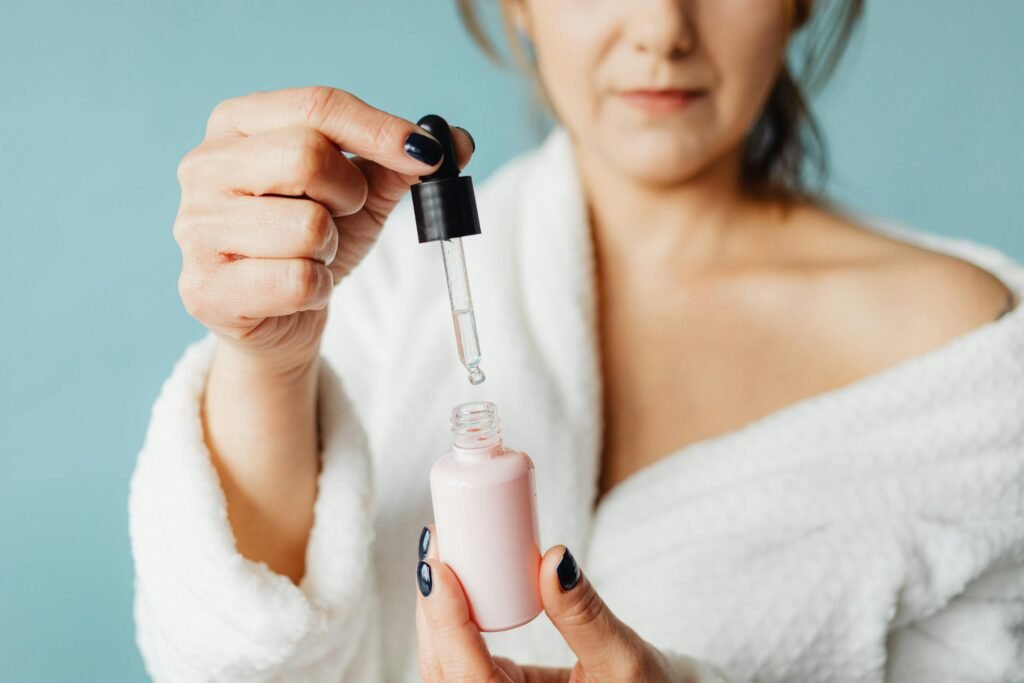
What is Black Seed Oil?
Black seed oil, also known as ‘Nigella sativa L.’ or ‘black cumin seed oil’, has been used for centuries in traditional medicine. It comes from the seeds of the nigella sativa plant, native to South Asia and the Middle East. This little seed packs a punch with its rich history and multitude of uses.
Now, let’s talk about why it’s becoming a staple in many skincare routines. Black seed oil is renowned for its anti-inflammatory, antimicrobial effects and moisturizing properties. It’s packed with antioxidants and essential fatty acids, making it a powerful ally in the fight against skin issues.
Sounds impressive, right? But as with any skincare ingredient, it’s important to understand both its benefits and potential drawbacks.
Many women have reported smoother, clearer skin after incorporating black seed oil into their regimen. The oil is often praised for its ability to reduce redness and irritation, which is a huge plus if you’re dealing with acne. But does it actually help with breakouts, or could it possibly make them worse?
Historical and Traditional Uses
To truly appreciate black seed oil, it helps to understand its rich history and the traditional uses that have made it a staple in various cultures for centuries.
Ancient Beginnings
Black seed oil has roots that trace back over 2,000 years. It was famously discovered in the tomb of the Egyptian pharaoh Tutankhamun, suggesting its esteemed value in ancient Egyptian society. Cleopatra is said to have used black seed oil as part of her beauty regimen, and Nefertiti reportedly relied on it to maintain her renowned complexion.
Middle Eastern and South Asian Traditions
In the Middle East, black seed oil has been a cornerstone of traditional medicine. South Asian cultures have also long embraced black seed oil for its medicinal properties. Ayurvedic practitioners have used it to treat a variety of ailments, from digestive issues to skin disorders. It’s often incorporated into herbal formulations designed to balance the body’s doshas and promote overall health.
Long before it became a trendy skincare ingredient, black seed oil was revered for its beauty benefits. Ancient texts and historical records highlight its use in treating skin conditions such as eczema, psoriasis, and acne. Its moisturizing and healing properties made it a go-to remedy for maintaining a healthy skin and glowing complexion
Other Traditional Medicinal Uses
Historically, black seed oil has been utilized for a myriad of health conditions:
- Digestive Health: Used to alleviate issues like bloating, gas, and indigestion.
- Respiratory Support: Employed to treat asthma, bronchitis, and other respiratory conditions.
- Immune System Boost: Recognized for its ability to enhance immune function and ward off infections.
- Anti-Inflammatory Agent: Applied topically or taken internally to reduce inflammation and pain in rheumatoid arthritis.
Black seed oil Benefits for Skincare
- Anti-Inflammatory Properties: Black seed oil is renowned for its anti-inflammatory effects, which can help soothe irritated skin and reduce redness. This is particularly beneficial if you’re dealing with acne or other inflammatory skin conditions.
- Antibacterial Effects: The oil’s antibacterial properties can help combat acne-causing bacteria, potentially reducing the occurrence of breakouts.
- Moisturizing Power: Packed with essential fatty acids, black seed oil is an excellent moisturizer. It helps to keep the skin hydrated and balanced, which is crucial for maintaining a healthy complexion.
- Antioxidant properties: Black seed oil is loaded with antioxidants, which help to protect the skin from damage caused by oxidative stress and free radicals. This can slow down the aging process and keep your skin looking youthful and vibrant.
- Balancing Oils: Another noteworthy benefit of black seed oil is its role in regulating sebum production. By balancing oils in the skin, black seed oil helps to prevent excess oiliness, a common culprit behind acne outbreaks for those with oily skin. This natural balancing act can contribute to clearer, healthier-looking skin overall.
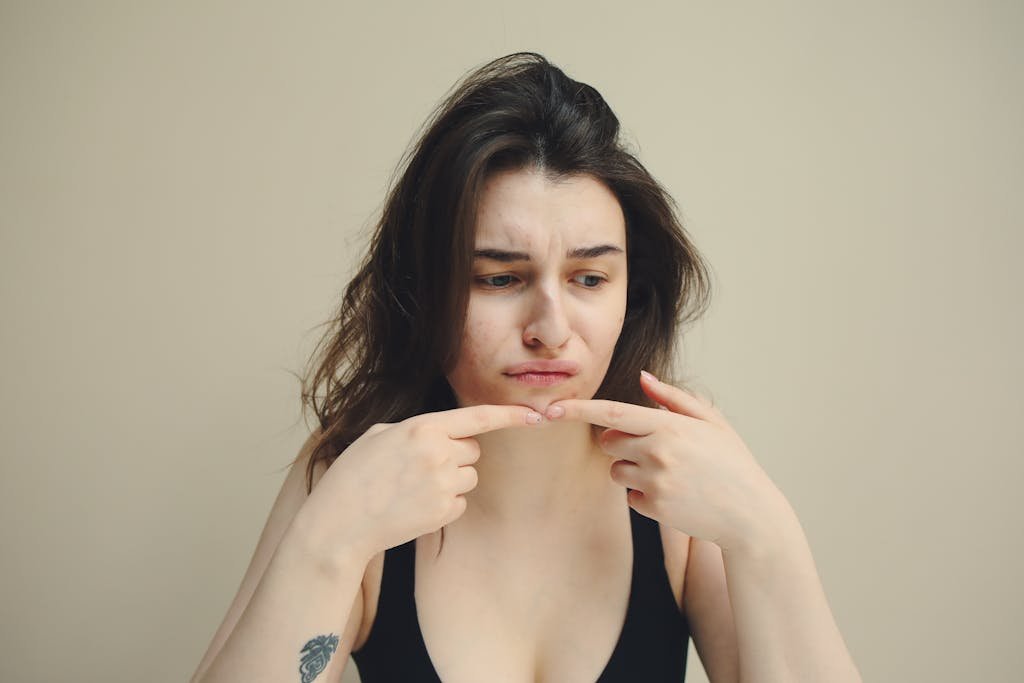
Black Seed Oil and Acne
Before delving into its effects, let’s explore the intriguing relationship between black seed oil and acne, considering both potential health benefits and concerns.
Acne Vulgaris occurs when hair follicles become clogged with oil and dead skin cells. This leads to the formation of pimples, blackheads, whiteheads, and sometimes even deeper cysts or nodules.
Could Black Seed Oil Clog Pores? While black seed oil boasts numerous skincare benefits, there’s a lingering concern: could it potentially clog pores? – Due to its rich, moisturizing nature, there’s a theoretical risk of pore congestion with topical application.
Anecdotal Evidence: Some individuals have reported experiencing breakouts or worsening acne after using black seed oil. Though anecdotal, these personal experiences warrant consideration when evaluating their suitability for skincare routines.
Scientific Evidence: Can Black seed oil cause acne?
What does scientific research reveal about black seed oil’s impact on acne?
Black seed oil has been shown to have very potent antibacterial properties against acne which is why many find it beneficial in treating acne.
Review of Scientific Studies: In a clinical study conducted by Abdul-Ameer and Al-Harchan (2010), “it was found that N. sativa oil lotion 10% significantly reduced the mean acne lesions count of papules and pustules after 2 months of therapy. In the test group, the response to treatment was graded as good in 58%, moderate in 35%, and no response in 7%. The satisfaction of patients with treatment was full in 67%, partial in 28%, and no satisfaction in 5%. This study attributed the significant improvement to the antimicrobial, immunomodulatory, and anti-inflammatory effects of N. sativa oil”.
Expert Opinions:
Dermatologists offer insights into the black seed oil-acne debate. While some acknowledge its potential benefits for certain skin conditions, others advise caution, especially for acne-prone individuals, citing the risk of exacerbating breakouts.
Considering both anecdotal evidence and scientific research, it’s essential to approach the use of black seed oil for acne management with caution and awareness. Further research is warranted to conclusively determine its efficacy and safety in skincare routines.
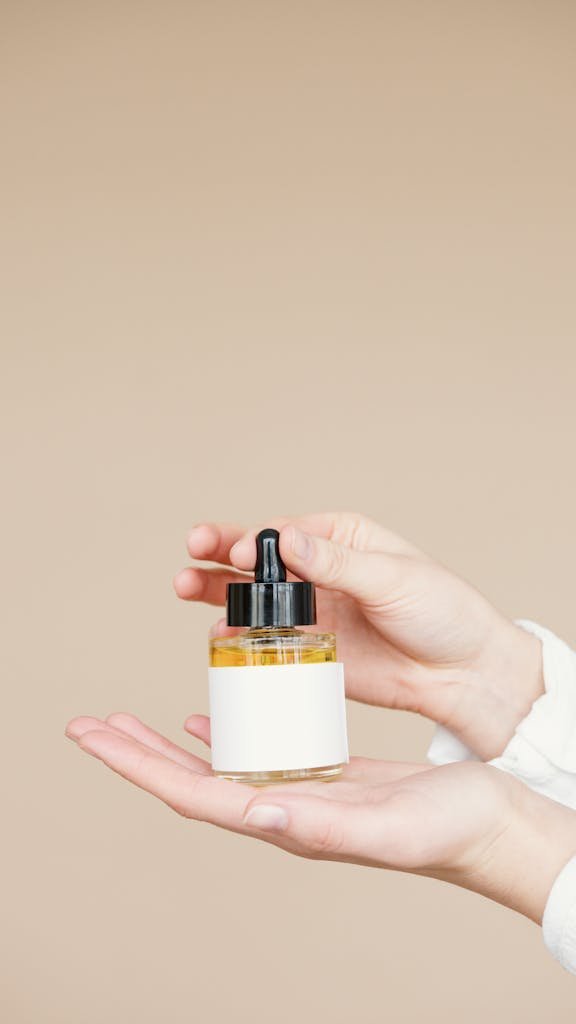
How to Use Black Seed Oil Safely
Let’s delve into the safe and effective ways to incorporate black seed oil into your skincare routine, ensuring optimal results without any adverse effects.
Patch Testing
Before diving headfirst into using black seed oil regularly, it’s crucial to conduct a patch test. This simple step involves applying a small amount of diluted black seed oil to a discreet area of your skin and monitoring for any adverse reactions. Patch testing helps identify potential sensitivities or allergies, allowing you to use black seed oil with confidence.
Dilution Recommendations
To minimize the risk of irritation, it’s essential to dilute black seed oil properly before applying it to your skin. Mixing it with a carrier oil like jojoba or coconut oil can help reduce its potency while still reaping its skincare benefits.
Following recommended dilution ratios ensures that you experience the nourishing effects of black seed oil without any undue irritation.
Combining with Other Products
For enhanced skincare benefits, consider combining black seed oil with other non-comedogenic products. Pairing it with gentle cleansers, moisturizers, or serums can help amplify its effects while addressing specific skincare concerns.
By incorporating black seed oil into a well-rounded skincare regimen, you can harness its potent properties for clearer, healthier-looking skin.
By adhering to these safe usage guidelines, you can confidently incorporate black seed oil into your skincare routine, unlocking its full potential without compromising your skin’s health.
Conclusion
In conclusion, black seed oil offers promising solutions for individuals struggling with acne, presenting a multitude of benefits tailored to address the needs of acne-prone skin.
Its anti-inflammatory properties provide relief from redness and swelling, while its potent antibacterial effects combat acne-causing bacteria. Additionally, the oil aids in regulating sebum production, effectively preventing excessive oiliness and potential breakouts.
However, it’s imperative to approach the utilization of black seed oil with caution, particularly for those with sensitive skin or acne-prone skin.
Conducting a patch test and appropriately diluting the oil are critical steps to ensure its safe and efficient application. By combining black seed oil with other non-comedogenic products, we can amplify its skincare benefits, fostering a comprehensive approach to acne management that prioritizes both safety and efficacy.

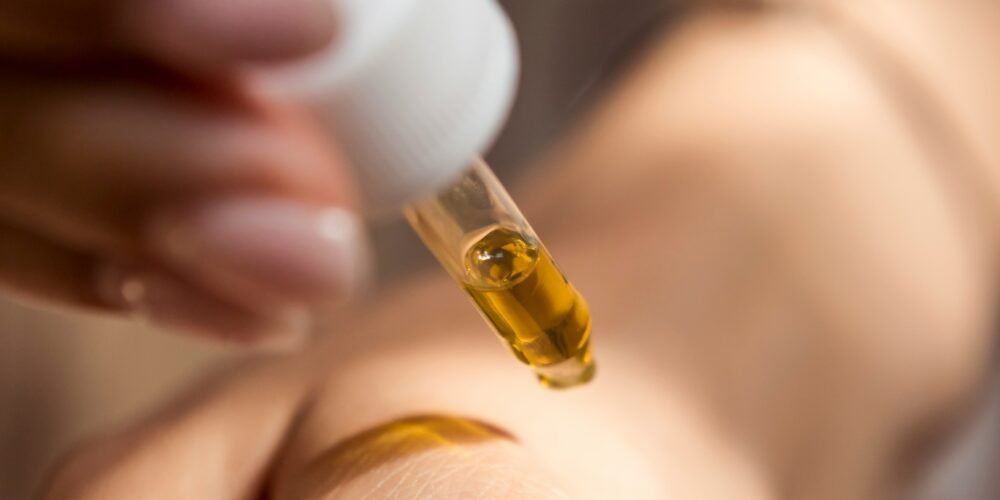
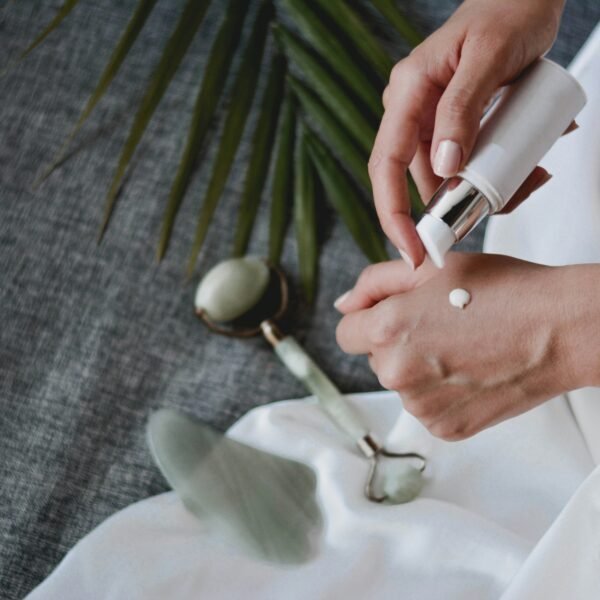
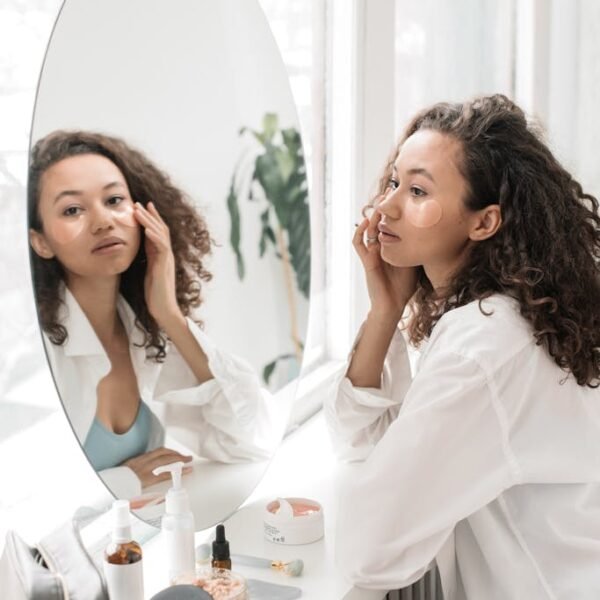

Your point of view caught my eye and was very interesting. Thanks. I have a question for you.
Thank you! What is your question?